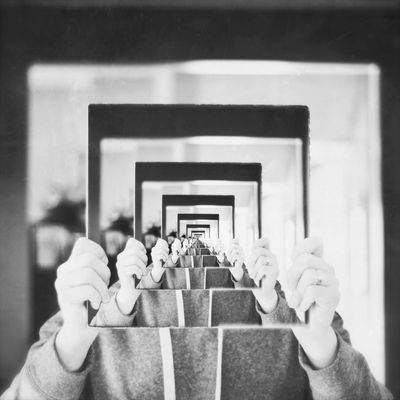
Déjà vu is among the eerier human experiences, partly because science has not gifted us with some rational explanation of it. (Is it a glitch in the Matrix or isn’t it?!) It’s long been a mysterious mental phenomenon because, as you might imagine, it’s not an easy thing to study in a lab.
Now, a clever new study, spotted by New Scientist, has inspired a clever new hypothesis about déjà vu: Maybe, argue scientists from the University of St. Andrews, it’s your mind’s way of fact-checking itself — and thus a sign of a healthy, working memory. (The reigning theory concerning déjà vu is that it’s a signal of the mind forming a false memory, which really only adds to the uncanniness of it all.)
The researchers read their volunteers a series of related words: bed, pillow, night, duvet. They borrowed this from scientists who study false memories, because when you give people this list, and then ask them later if they recall hearing the word sleep, they tend to say that, yes, they did hear the word sleep. (They didn’t.) But these researchers modified this experiment: After reading the list, they asked their volunteers if they’d heard a word beginning with s. No, the volunteers answered (correctly), they hadn’t. Later, they asked them whether or not they’d heard the word sleep — and this brought on a confusing pattern of thoughts. They felt like they’d heard the word, but they knew from the s question that they couldn’t have — still, they really felt like they had! Déjà vu, all over again.
The study volunteers gave their answers from inside an fMRI, allowing the researchers to scan their brains while they went through that mental tug-of-war (“I think I’ve heard that before — but I couldn’t have! But, no, I think I have!”). If, as the current hypothesis goes, déjà vu is the birth of a false memory, then as this was going on you’d expect to see activity in the hippocampus, which is involved with memory formation. But the hippocampus was quiet; instead, the researchers observed activity in the frontal regions of the brain, areas associated with decision-making.
It’s just one study, and the researchers urge that their results will need to be confirmed before anything definitive can be said here. But their findings suggest, New Scientist explains, that “the frontal regions of the brain are probably checking through our memories, and sending signals if there’s some kind of memory error — a conflict between what we’ve actually experienced and what we think we’ve experienced.” It’s a new way to think about déjà vu — as an unseen fact-checker for your own autobiography.




